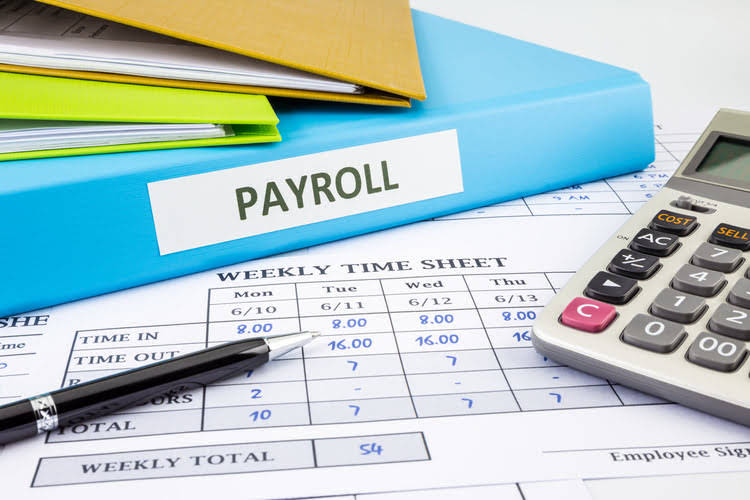In der Welt der Spielautomaten ist die Volatilität ein entscheidender Faktor, der maßgeblich darüber entscheidet, wie ein Spiel erlebt wird. Für viele Spieler ist das Verständnis dieses Konzepts essenziell, um das passende Spiel für den eigenen Stil zu wählen und verantwortungsvoll zu spielen. Besonders moderne Spiele wie olympus gates pragmatic illustrieren eindrucksvoll, was hohe Volatilität bedeutet und wie sie das Spielverhalten beeinflusst.
Im Folgenden beleuchten wir die Bedeutung der Volatilität bei Glücksspielen, ihre technischen Grundlagen und die praktischen Konsequenzen für die Spieler. Ziel ist es, ein tiefgehendes Verständnis für die Mechanismen zu vermitteln, die hinter der hohen Volatilität stehen, und aufzuzeigen, warum dieses Wissen für verantwortungsvolles und strategisches Spielen unerlässlich ist.
Inhaltsverzeichnis
1. Einführung in die Volatilität bei Glücksspielen
Die Volatilität bei Spielautomaten beschreibt die Wahrscheinlichkeit und die Häufigkeit, mit der Gewinne auftreten, sowie deren Höhe. Sie ist ein Maß dafür, wie “wild” oder “ruhig” das Spielverhalten im Laufe der Zeit erscheint. Für Spielende bedeutet dies, dass die Volatilität Einfluss auf die Dauer des Spiels, die erzielten Gewinne und die allgemeine Erfahrung hat.
Man unterscheidet grundsätzlich zwischen hoher, mittlerer und Volatilität. Spiele mit niedriger Volatilität zeichnen sich durch häufige, aber meist kleinere Gewinne aus. Im Gegensatz dazu bieten Spiele mit hoher Volatilität seltener Gewinne, diese sind jedoch deutlich größer. Mittlere Volatilitäten liegen irgendwo dazwischen und bieten einen Kompromiss zwischen Risiko und Belohnung.
Die Relevanz der Volatilität liegt darin, dass sie das Risiko-Rendite-Profil eines Spiels maßgeblich beeinflusst. Für risikoscheue Spieler sind Spiele mit niedriger Volatilität oft geeigneter, während abenteuerlustige Spieler die Chance auf große Gewinne bei hoher Volatilität suchen. Das Verständnis dieses Konzepts ist daher essenziell, um die eigenen Erwartungen realistisch zu steuern und Spielsituationen besser einschätzen zu können.
2. Grundlegende Konzepte der hohen Volatilität
a. Was bedeutet hohe Volatilität für das Risiko und die Gewinnchancen?
Bei Spielen mit hoher Volatilität ist das Risiko höher, längere Durststrecken ohne Gewinne zu erleben. Gleichzeitig besteht aber auch die Chance auf sehr hohe Auszahlungen, wenn ein Gewinn eintritt. Das bedeutet, dass Spieler, die sich für hoch volatile Spiele entscheiden, häufig größere, aber seltener auftretende Gewinne erwarten können.
b. Einfluss auf den Spielverlauf und die Gewinnhöhe
Ein Spiel mit hoher Volatilität ist geprägt von längeren Phasen der Verlustserie, gefolgt von gelegentlichen, meist beträchtlichen Gewinnen. Dies beeinflusst das Spielerlebnis stark: Es erzeugt eine Atmosphäre von Spannung und Nervenkitzel, kann aber auch zu Frustration führen, wenn Gewinne ausbleiben.
c. Psychologische Aspekte: Spannung und Frustration bei hohen Volatilitäten
Das psychologische Erlebnis bei hoch volatilen Spielautomaten ist geprägt von extremer Spannung, da Gewinne unregelmäßig und unvorhersehbar auftreten. Für manche Spieler ist diese Unsicherheit reizvoll, während andere bei längeren Verlustphasen Frustration empfinden. Das Verständnis dieser Dynamik hilft, das eigene Spielverhalten besser zu steuern und emotionale Überreaktionen zu vermeiden.
3. Technische Faktoren, die hohe Volatilität ausmachen
a. Gewinnfrequenz und Auszahlungsstruktur
Die Gewinnfrequenz beschreibt, wie oft im Durchschnitt eine Auszahlung erfolgt. Bei Spielen mit hoher Volatilität ist diese Frequenz relativ niedrig, was bedeutet, dass Gewinne seltener, aber oft höher ausfallen. Die Auszahlungsstruktur, also die Verteilung der möglichen Gewinne, ist dabei so gestaltet, dass große Auszahlungen nur gelegentlich ausgelöst werden.
b. Hit-Frequenz: Bedeutung und Einfluss auf das Spielverhalten
Die Hit-Frequenz gibt an, wie hoch der Anteil der Drehungen ist, bei denen eine Auszahlung erfolgt. Bei olympus gates pragmatic liegt diese bei etwa 28,5 %. Das bedeutet, dass bei ungefähr jeder dritten Drehung ein Gewinn erzielt wird, wobei die Höhe stark variieren kann. Eine niedrigere Hit-Frequenz ist typisch für hoch volatile Spiele und trägt zum Gefühl der Unvorhersehbarkeit bei.
c. Variabilität der Auszahlungen und ihre Berechnung
Die Variabilität beschreibt, wie stark die Gewinne innerhalb eines Spiels schwanken. Sie wird durch die Verteilung der Auszahlungsbeträge beeinflusst. Spiele mit hoher Variabilität führen zu unregelmäßigen Auszahlungen, die sich stark von den durchschnittlichen Auszahlungswerten unterscheiden. Dies lässt sich mathematisch durch die Standardabweichung der Auszahlungen erfassen, wobei höhere Werte auf eine höhere Volatilität hinweisen.
4. Beispiel: Gates of Olympus als moderner Vertreter hoher Volatilität
a. Spielbeschreibung und thematischer Hintergrund (Götter, Mythologie)
Gates of Olympus ist ein populärer Online-Spielautomat, der auf der griechischen Mythologie basiert. Der Spieler schlüpft in die Rolle eines Abenteurers, der den Turm des Zeus erklimmt, um Reichtümer und Gunst der Götter zu erlangen. Das Spiel besticht durch seine ansprechende Grafik, symbolisiert durch Götter, Edelsteine und antike Artefakte, sowie durch seine innovativen Spielmechanismen.
b. Warum Gates of Olympus hohe Volatilität aufweist
Das Spiel ist so gestaltet, dass die Gewinnchancen auf große Auszahlungen nur gelegentlich eintreten. Dies wird durch spezielle Mechanismen wie Multiplikatoren, Bonusspiele und die niedrige Hit-Frequenz unterstützt. Die Kombination aus diesen Elementen sorgt dafür, dass die Gewinne unregelmäßig auftreten, aber im Falle eines Treffers erheblich ausfallen können.
c. Konkrete Zahlen: Hit-Frequenz von ca. 28,5 % und deren Bedeutung
Die Hit-Frequenz von ca. 28,5 % bedeutet, dass nahezu jede dritte Drehung einen Gewinn generiert. Dabei sind die Auszahlungen in der Regel durch Multiplikatoren und Bonusmechanismen deutlich höher als bei klassischen Spielautomaten. Diese niedrige Frequenz gepaart mit hohen Auszahlungen macht das Spiel zu einem Beispiel für hohe Volatilität, bei der Spannung und Risiko eng miteinander verbunden sind.
d. Vergleich mit Spielen mit niedrigerer Volatilität
Im Vergleich zu Spielen mit niedriger Volatilität, bei denen häufig kleinere Gewinne erzielt werden, zeichnet sich Gates of Olympus durch längere Phasen des Verlusts und seltene, aber große Gewinne aus. Für Spieler, die auf schnelle Gewinne hoffen, kann dies frustrierend sein. Für Risikofreudige bietet die hohe Volatilität jedoch die Chance auf außergewöhnliche Auszahlungen, was den Reiz dieses Spiels ausmacht.
5. Vorteile und Nachteile hoher Volatilität bei Spielen
a. Für welche Spielertypen ist hohe Volatilität geeignet?
Hoch volatile Spiele sind besonders geeignet für risikobereite Spieler, die das Adrenalin und die Spannung suchen. Diese Spieler sind bereit, längere Verlustphasen in Kauf zu nehmen, um im Falle eines großen Treffers erheblich zu profitieren. Auch für jene, die strategisch auf große Gewinne setzen, sind solche Spiele attraktiv.
b. Chancen auf große Gewinne vs. Risiko von längeren Verlustphasen
Der entscheidende Vorteil hoher Volatilität liegt in der Möglichkeit auf enorme Ausschüttungen, die bei passenden Glücksfällen auftreten können. Das Risiko besteht jedoch darin, dass längere Phasen ohne Gewinne das Budget schnell erschöpfen können. Die Balance zwischen Spannung und Risiko ist daher für jede Spielstrategie maßgeblich.
c. Strategien im Umgang mit hoher Volatilität
Um bei hoch volatilen Spielen erfolgreich zu sein, empfiehlt es sich, feste Budgetlimits zu setzen und das Spielverhalten diszipliniert zu steuern. Das Nutzen von Einsatzstrategien, wie dem Einsatz kleiner Beträge bei jedem Spin, kann helfen, Verluste zu minimieren und die Spielzeit zu verlängern. Zudem ist es ratsam, sich bewusst zu sein, dass große Gewinne selten, aber möglich sind, um die Motivation aufrechtzuerhalten.
6. Die Rolle der Spielgestaltung und Entwicklung bei hoher Volatilität
a. Einfluss der Software-Designs auf die Volatilität
Die Entwickler von Spielautomaten steuern die Volatilität durch die Gestaltung der Gewinnwahrscheinlichkeiten, Auszahlungsstrukturen und Bonusmechanismen. Hoch volatile Spiele setzen oft auf seltene, aber hohe Auszahlungen, die durch komplexe Zufallsmechanismen ausgelöst werden.
b. Beispiele für Mechanismen, die hohe Volatilität fördern (z. B. Bonusspiele, Multiplikatoren)
Mechanismen wie Bonusspiele, bei denen spezielle Symbole oder Ereignisse große Multiplikatoren auslösen, sind typisch für hoch volatile Spiele. Diese Funktionen erhöhen die Variabilität der Auszahlungen erheblich und sorgen für das besondere Spielgefühl. Ein Beispiel ist die Funktion der Multiplikatoren bei Gates of Olympus, die Gewinne in kurzer Zeit vervielfachen können.
c. Bedeutung von Random-Number-Generators (RNG) und Fairness
Die Grundlage für die Fairness und Zufälligkeit in modernen Spielautomaten sind Random-Number-Generators (RNG). Sie gewährleisten, dass die Ergebnisse unbeeinflussbar und unvorhersehbar sind, was besonders bei hoch volatilem Spielverhalten wichtig ist. Seriöse Entwickler lassen





